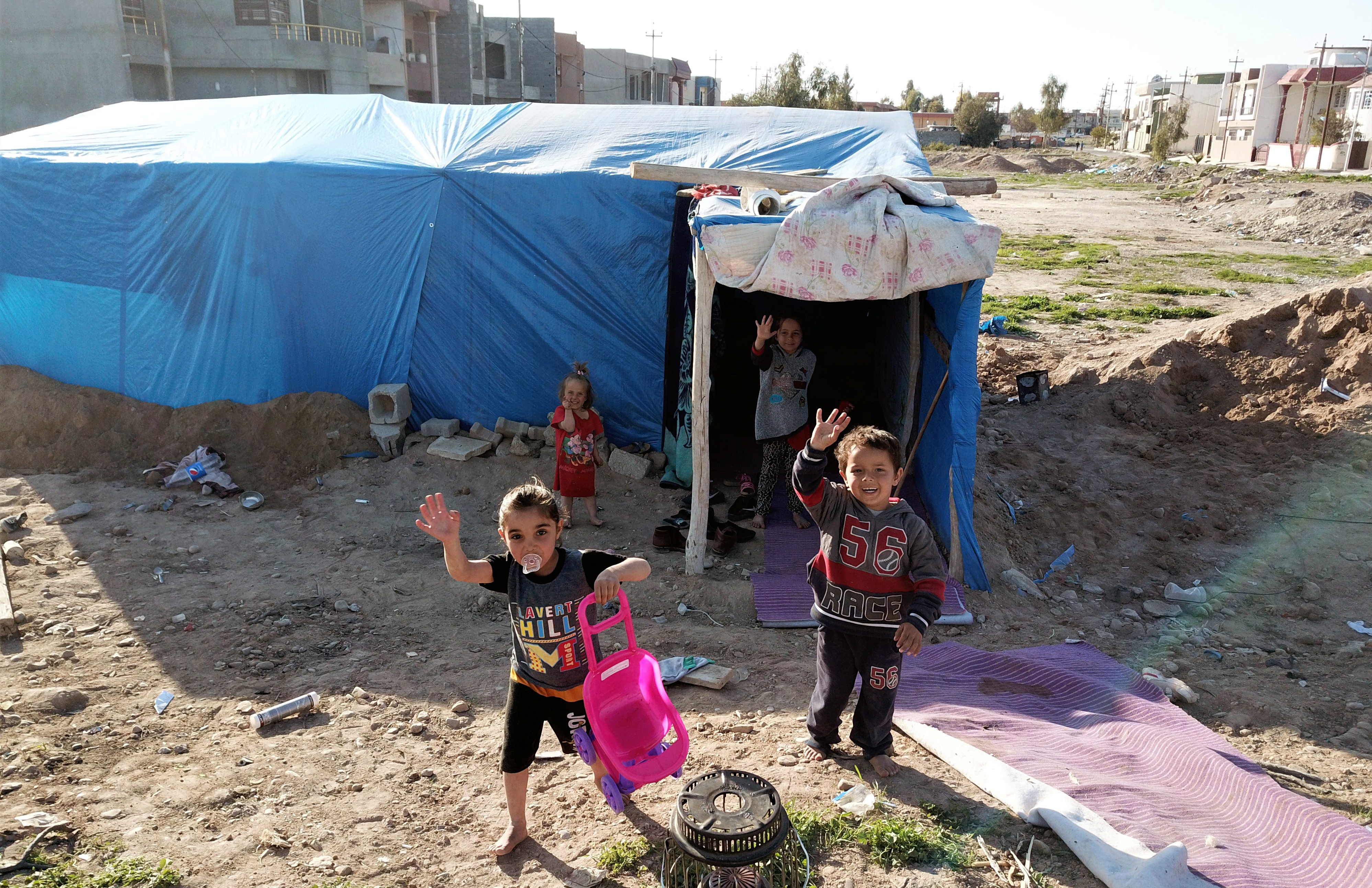Khadija Shams fled war-torn Syria to Iraq but since six years she is leading a very miserable live on the streets of Kirkuk. Shams is originally from the Syrian capital Damascuss where war broke out in 2011 up to the present. Millions fled the country seeking a safe shelter all over the world.
Following the "Arab Spring" riots in Tunisia and Egypt, the protests in Syria have turned into internal civil war forcing millions to imigrate to neighbor countires and Europe.
"I live on the streets with one of my son and his famil. My other son is also close to us. We are leading a very difficult life," Shams sighed.
Khadija Shams, 67, recalls how she passed six tiring years of migration in Iraq. Photo by Karwan Salihi.
Shams, 67, is mother for two sons and two daughters. Two of the sons and a daughter are married and they all live in couple of tents close to each other. The tents of Syrian refugees are made of blue nylon and every year they have to replace it by themselves.
Most of them live in the district of Domiz south of Kirkuk on the streets and pavements. "We wait for charities from people because we were earning small money from simple works but that is gone due to Corona," Shams said.
They bring power and water from neighbor houses for free.
"We wait for charities from people because we were earning small money from simple works but that is gone due to Corona," Shams said.
KirkukNow has come to know that local or international organizations are not providing aid to Syrian refugees of Kirkuk. Local authorities do not provide any basic services. They let them to use the streets and pavements and do not force them to leave.
Almost 240,000 Syria refugees have fled to Iraq's northern Kurdish region. There were no camps for IDPs and refugees in Kirkuk but later several camps were built in Kirkuk for Iraqi IDPs which were shut in 2020 as most of the displaced returned home voluntarily.
Kirkuk office of Iraqi ministry of migration and the displaced said Syrian refugees refused to live in camps so they live in different areas in the city. There are 130 families of them and the majority live on the streets while some who can afford rent live in houses, the office says.
Ammar Ali, 30, has fled Dara for Kirkuk in 2014 after he lost a son and a daughter by a bombing demolished his house. "We live in harsh and severe condition. We have to change our place now and then."
Ali was working as a construction laborer and could afford rent for the hose he was living in with his family. He lost his work due to the Covid-19 pandemic. "The landlord kicked me out. After seven years of immigration, I live with my three kids on the streets under a nylon tent. Some days we gather leaves of trees and boil it to eat it."
"The landlord kicked me out. After seven years of immigration, I live with my three kids on the streets under a nylon tent. . Some days we gather leaves of trees and boil it to eat it."
Ammar was leading a normal live home where he had an olive orchard but it was all burnt and no shelter for him home. "No house and no property left home so how to back home?"
Most of the Syrian refugees work as construction workers or vending on the streets and others begging.
Syrian refugees living on the streets of Domiz district of Kirkuk under nylon tents. Photo by karwan Salihi.
Despite the daily life hardships the parents face in terms of job opportunities and proper shelter, the children of the refugees cannot find any special school for refugees. They cannot attend classes of local schools.
Shams is homesick and prays day and night to return home. "I wish I could die home to be buried there but it is almost impossible to see our birthplace once again."





